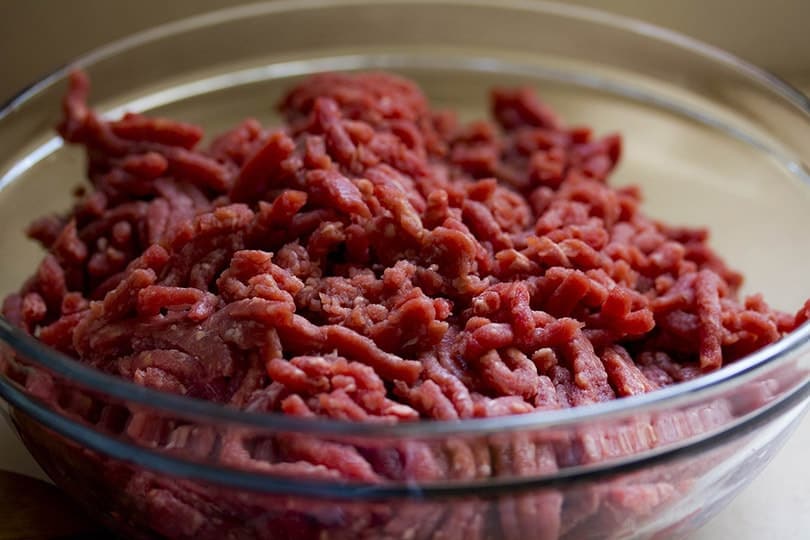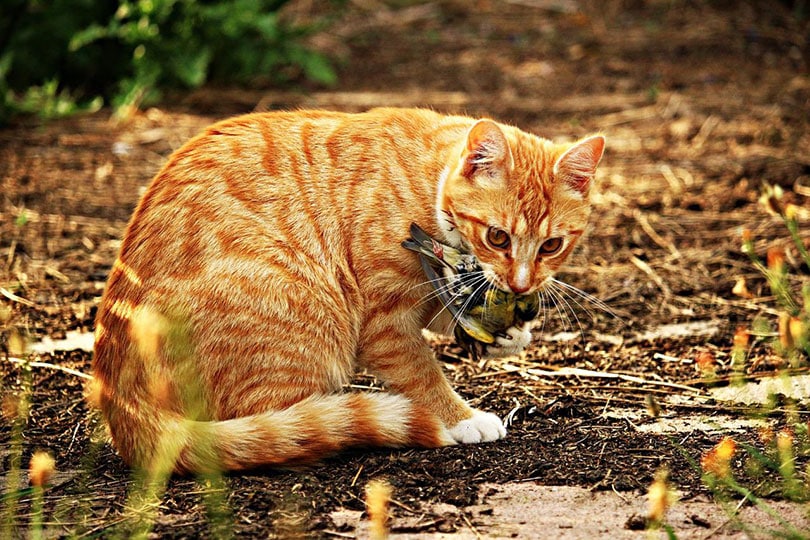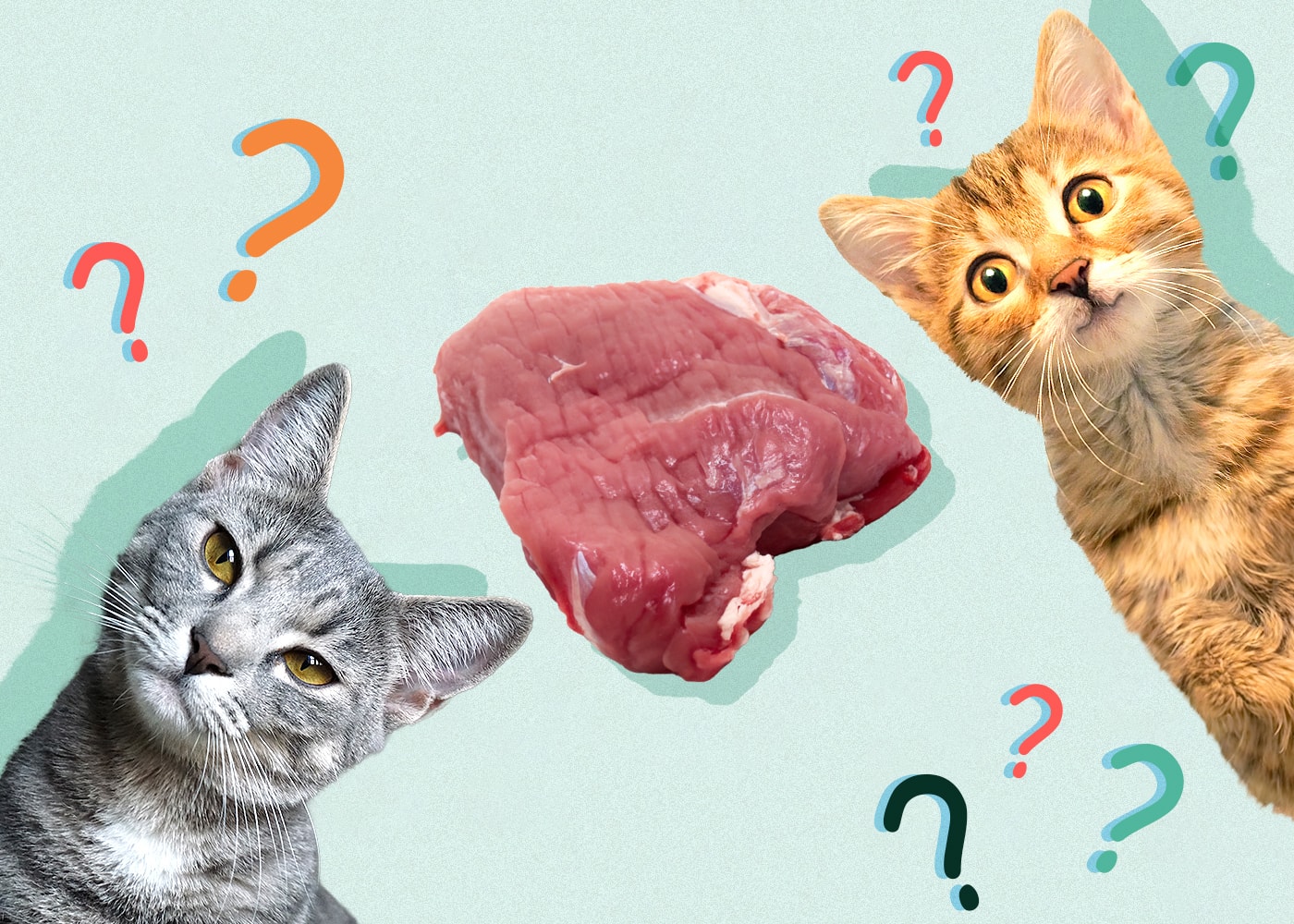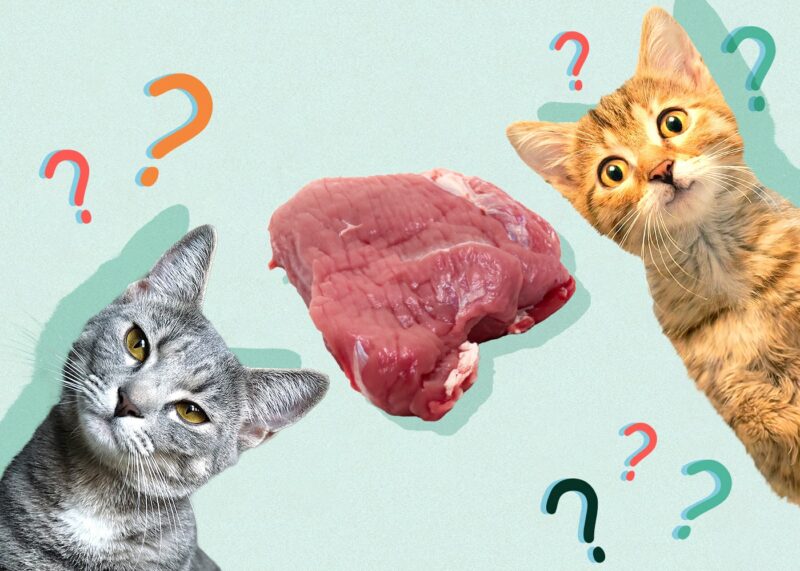There has been some controversy about whether or not a raw food diet is a good idea for cats. Allowing cats to eat raw protein sources is bringing them as close to their natural diet in the wild as possible, but that still doesn’t mean there aren’t risks associated with it.
So, can cats eat raw meat? The answer isn’t that simple. But raw diets are not typically recommended and can have some negative impacts if you’re not careful.

What is a Raw Food Diet?
Many cat owners have opted for a raw diet because it mimics a cat’s natural diet in the wild. What does this entail? A raw diet consists of feeding your cat uncooked animal products. These products could include muscles, organs, and even bones. The ideal raw food diet for felines needs to be prepared based on very specific recipes. A lot of cat owners that choose to make these recipes at home don’t realize they are missing crucial vitamins and minerals. If you should choose to feed your cat a raw diet, make sure to include your veterinarian in the decision.

Why Consider Raw Diets for Cats?
Cats are obligate carnivores, meaning they need to eat animal products in order to survive. Cats do not need vegetables and carbohydrates in their diets like a lot of pet food brands say. When they do eat these foods, they can only tolerate them in small amounts.
Cats thrive on a high-protein diet that is also high in moisture minerals, vitamins, amino acids, and essential fatty acids.
Most supporters of a raw food diet believe that cooking a cat’s food can cause a decline in the vital substances in their food. They believe that the best way to feed their pets is to mimic a wild diet as closely as possible.
What Do Cats Eat in the Wild?
Cats in the wild would typically feed on small birds, mammals, fish, reptiles, and insects. Creating your own raw diet would have to be very similar to this. Benefits of feeding your cats a raw diet may include shinier coats, cleaner teeth, and better overall health. Even though these may all be true, there are still some concerns with this type of lifestyle.


Are Raw Food Diets Safe for Cats?
The idea of a raw diet is great, but not if it isn’t executed properly. There are several risks you take when feeding your cat raw animal products.
1. Bacteria and Parasites
Parasites and potentially harmful bacteria can live in raw meat, and that isn’t something that you want your cat eating. They can become sick or even pass those parasites onto you. When you use a commercial raw diet plan, the company goes through testing to minimize the opportunity for food-borne illness. This isn’t possible when you create the raw food recipe yourself. The only way to decrease the risk of contamination is to wash everything that the protein comes in contact with, which isn’t always a safety guarantee.
2. Nutrient Deficiencies
When you make raw food at home, it’s difficult to ensure that your cat’s meals are well-balanced. Cats need a variety of nutrients, minerals, and other substances to live a healthy life. You may not have access to or not be aware of all of the things that your recipe should include.
3. Bones
Cats may lick bones clean in the wild, but small pieces of bone fragments can be dangerous for your cat. If any pieces break off and get swallowed, they could get lodged in your cat’s digestive tract, damage their teeth, or splinter after being swallowed.
Commercial Raw Diet Cat Foods
Feeding a raw diet, whether it is homemade or a commercial product, is not recommended. If you still feel you would like to explore feeding a raw diet, speak with your veterinarian and research, research, research. If you are looking to feed your cat a commercial raw diet, make sure they follow the AAFCO standards to ensure their safety.

Final Thoughts
It’s easy to see why some cat owners are attracted to raw food diets. Feeding your cat what they would eat in a natural setting has kept cats alive for centuries, but that doesn’t mean some cats haven’t become ill in the process. Your cat’s health and safety should always be your top priority. So make sure if you are leaning toward feeding your cat a raw food diet, that you speak with your veterinarian and research, so you are well-informed.
See Also:






